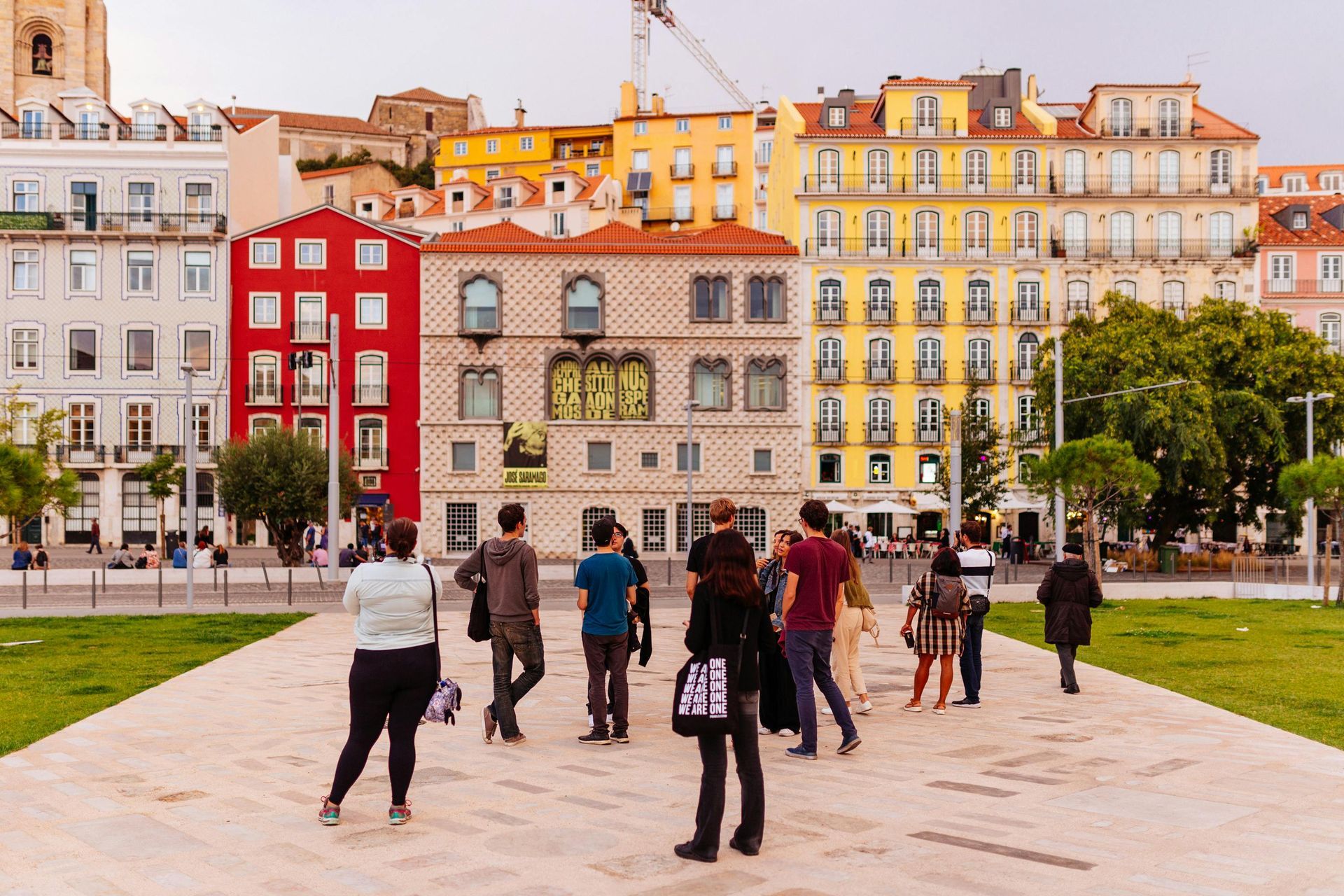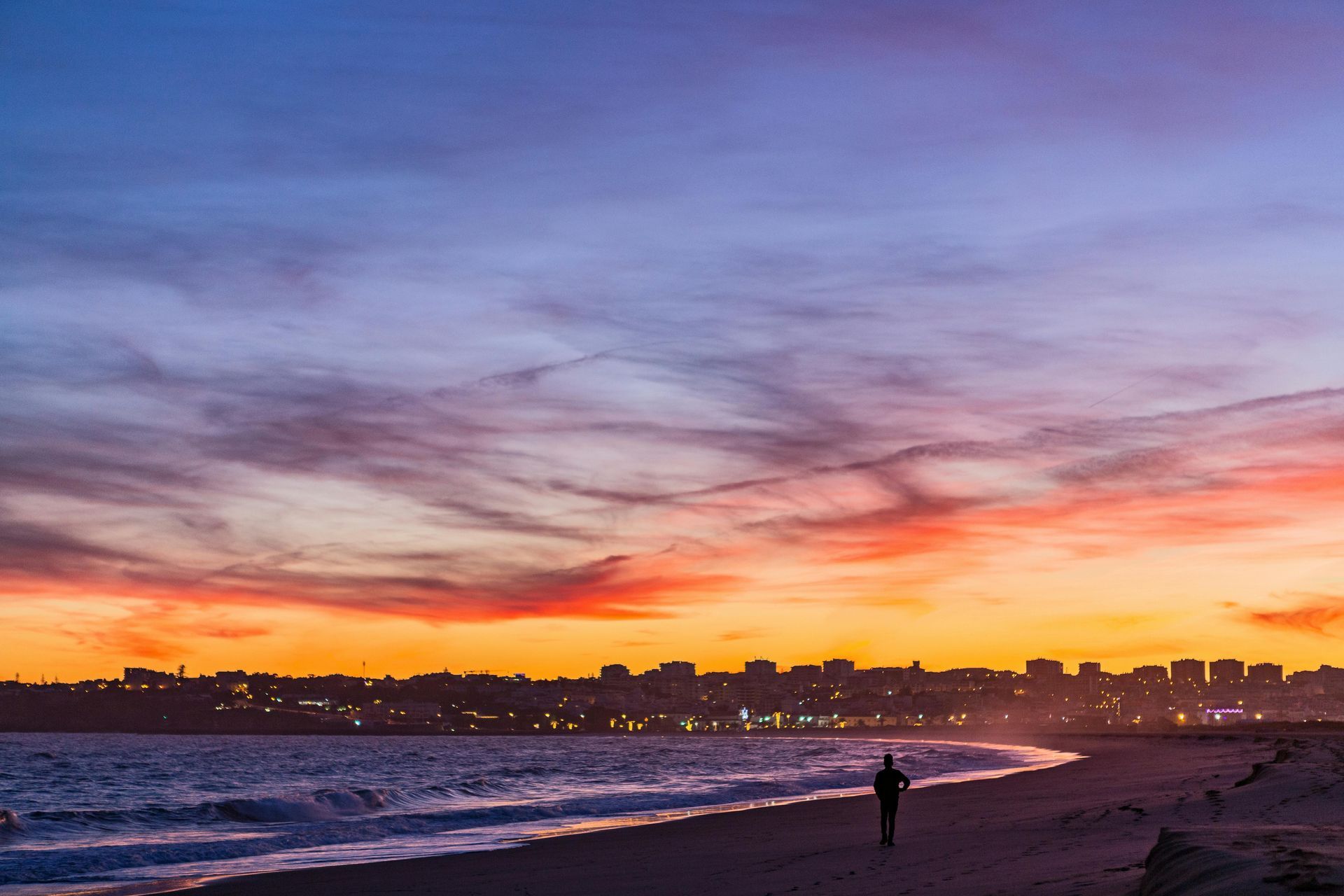Get in touch
555-555-5555
mymail@mailservice.com
Portugal's Investment Residency Options
September 29, 2024
Exploring Portugal’s 2024 Real Estate Investment Residency Options:
Your Path to a New Lifestyle

In 2024, Portugal presents several appealing residency options for foreign nationals seeking to live and invest in the country. Among the most notable are the D7 Passive Income Visa, the Digital Nomad Visa, and the revamped Non-Habitual Resident (NHR) program, offering unique pathways to residency, particularly for investors, remote workers, and retirees.
1. D7 Passive Income Visa: This visa is a popular choice for those with stable passive income sources such as pensions, rental properties, or other investments. The D7 visa allows individuals to live in Portugal without the need to engage in active employment. Applicants must demonstrate sufficient regular income to support themselves and any dependents, typically around €10,800 per year for a single applicant, with additional requirements for each dependent. This visa is attractive because it provides not only residency but also access to Portugal’s public healthcare system, education, and, after five years, the possibility of applying for permanent residency or citizenship.
2. Digital Nomad Visa: For professionals who work remotely, Portugal's Digital Nomad Visa (or D8 visa) is a tailored option. It allows remote workers and freelancers to live in Portugal while earning income from foreign-based employers or clients. Applicants must demonstrate sufficient income to support their stay in Portugal, typically at least €2,820 per month, based on current requirements. This visa is perfect for entrepreneurs, freelancers, and anyone who can work independently of location, offering a residence permit that can be renewed after two years, leading eventually to permanent residency.
3. Non-Habitual Resident (NHR) Program: Portugal’s Non-Habitual Resident (NHR) program has been a key factor in attracting foreign professionals and retirees since its introduction in 2009. In 2024, the government introduced the NHR 2.0 version, aimed at continuing the country’s efforts to draw skilled talent and investments, particularly in fields contributing to Portugal’s scientific and economic growth-
The NHR program offers significant tax benefits, including a flat 20% tax on Portugal-sourced income from high-value-added professions, while potentially exempting foreign-sourced income from Portuguese taxation, depending on the applicable tax treaties. For those who qualify, the program lasts for 10 years, making it an appealing option for expatriates looking to manage their tax liabilities efficiently.
The recent changes, however, have narrowed the scope of eligible applicants, focusing more on professionals in industries aligned with Portugal’s growth sectors. While the specifics of NHR 2.0 are still evolving, the program remains a compelling option for retirees, entrepreneurs, and investors with qualifying income structures.
Investing in Real Estate for Residency: Although the Golden Visa is no longer available for direct real estate purchases as of 2023, it is still possible to gain residency through property investments if the real estate is of historical or cultural significance. Under specific guidelines, buying and restoring properties classified as historic can qualify for residency, provided the renovations respect local rules and conservation standards. This avenue remains open for those interested in both preserving cultural heritage and obtaining residency in Portugal.
At The Agency Algarve – Purcell & Silveira Team, we specialize in helping clients navigate these residency options through strategic real estate investments. With our deep knowledge of the Algarve's luxury market, we ensure that your investments align with both your lifestyle goals and Portugal's visa requirements. Whether you're looking to relocate for a better quality of life or explore investment opportunities, we are here to guide you every step of the way.
For more personalized advice on your residency and investment options, or to explore properties in the Algarve that meet these criteria, don’t hesitate to contact us today

October 31, 2024
The Algarve is shining brighter than ever as an enticing destination for international buyers. With its stunning landscapes, lovely climate, and lively culture, choosing the right neighborhood is essential for home seekers and investors alike. Let’s explore the top neighborhoods to consider in 2024! 1. Vilamoura: Luxury Living at Its Best Known for its opulent properties and world-class marina, Vilamoura stands out as a premier destination for luxury living. With beautiful beaches, top-notch golf courses, and upscale restaurants, it’s perfect for those looking to embrace a glamorous lifestyle. Plus, with ongoing developments, it remains a hot spot for real estate investments. 2. Lagos: A Blend of History and Modernity Lagos captivates with its historic charm and vibrant nightlife. Offering everything from traditional townhouses to sleek villas, it attracts diverse buyers. The rising rental yields in the area make it an appealing choice for investors looking to capitalize on the tourism boom. 3. Carvoeiro: A Picturesque Coastal Village Carvoeiro is a charming village known for its stunning coastal cliffs and crystal-clear waters. It offers a range of properties, from quaint apartments to luxurious villas. With its laid-back atmosphere and strong rental market, Carvoeiro is perfect for those seeking a tranquil lifestyle or a holiday investment. 4. Loulé: Traditional Charm Meets Modern Living Famous for its lively market and traditional festivals, Loulé offers a blend of cultural richness and modern amenities. The area boasts a variety of properties, making it suitable for families and retirees alike. The increasing demand for homes in Loulé highlights its growing popularity as a residential choice. 5. Olhão: A Taste of Authentic Algarve Olhão is known for its beautiful waterfront and authentic Portuguese charm. The town is less touristy than others, providing a more laid-back lifestyle. With a mix of traditional and contemporary properties, Olhão appeals to those looking for a unique home and investment opportunities. 6. Albufeira: The Life of the Party Albufeira is famous for its lively atmosphere, drawing in a younger crowd and tourists alike. With a wide variety of properties available—from holiday apartments to luxurious villas—it's a prime location for both lifestyle buyers and investors. The area's popularity ensures great rental potential. 7. Olhos d'Água: A Serene Coastal Escape Nestled between Albufeira and Vilamoura, Olhos d'Água offers stunning beaches and a peaceful ambiance. This small fishing village is ideal for families and retirees looking for a relaxed lifestyle. Its charming properties and close-knit community make it a hidden gem in the Algarve. 8. Portimão: A Coastal Gem As a vibrant city that balances residential and commercial properties, Portimão is a gem for buyers. Known for its marina and proximity to the renowned Praia da Rocha beach, it continues to attract attention from lifestyle seekers and investors. With urban regeneration projects underway, the local market is set for growth. 9. Silves: Embrace Tradition For those desiring a quieter lifestyle steeped in history, Silves is the perfect choice. With beautiful countryside views and a charming historic center, properties here are more affordable. This makes Silves a fantastic option for first-time buyers and those looking for great value. Each of these neighborhoods brings unique features and investment potential, catering to a variety of tastes and budgets. As the Algarve real estate market thrives in 2024, partnering with a knowledgeable local agent can help you navigate this diverse landscape and find the perfect property that suits your needs. Are you ready to find your dream home in the Algarve? Our team at The Agency Vilamoura is here to assist you every step of the way. Contact us today to learn more about available properties and how we can help you navigate the exciting real estate landscape!

October 31, 2024
Portugal's real estate landscape is evolving, presenting a plethora of emerging investment opportunities, especially for those willing to think outside the box. One of the most intriguing areas of potential lies in the acquisition and renovation of historic buildings. This approach not only contributes to the preservation of cultural heritage but also attracts a growing market of buyers and renters interested in unique, character-filled homes. For instance, properties like the historic Pousada de Lisboa have gained significant attention, with prices reaching up to €600,000 for substantial renovations that transform them into boutique hotels or luxury residences. These properties often come with generous tax incentives, making them attractive for investors looking to capitalize on the tourism boomhe trend toward sustainable living is pushing investors to explore interior farms and rural plots. Regions like Alentejo and Beiras are witnessing a surge in demand for agricultural land, where prices can range from €2,000 to €10,000 per hectare. This presents opportunities for eco-tourism ventures, organic farming, or even the establishment of sustainable communities . Moreover, theon revitalizing urban areas has opened doors for investment in plots designated for development. For example, land in the Lisbon outskirts can be acquired for as little as €100,000, with the potential for significant appreciation as infrastructure improves and demand rises . Portugal's commitment to sustaind urban regeneration ensures a dynamic and attractive market for innovative investors. As the demand for unique, environmentally friendly properties continues to grow, those who recognize these opportunities will be well-positioned to capitalize on the bright future of Portugal’s real estate market. Investing in real estate can also open doors to various residency options. While the Golden Visa program has recently expired, there are still pathways available for investors. Options like the D7 Passive Income Visa and the Non-Habitual Resident (NHR) program offer attractive incentives for those looking to settle in Portugal. These programs are designed to attract individuals with means or specific skills, making Portugal an appealing destination for those seeking a new lifestyle . In conclusion, with the combination of hrojects, sustainable land investments, and urban development opportunities, now is an exciting time to explore what Portugal's real estate market has to offer.

October 31, 2024
Discover Portugal's new housing measures aimed at helping young people under 35 achieve homeownership. Learn about tax exemptions, government funding, and eligibility criteria that make purchasing your first home in Portugal more accessible than ever. Explore how these initiatives foster economic growth while addressing housing challenges.

October 31, 2024
Exciting news for travelers and investors alike: United Airlines will be launching a direct flight from Newark (New York) to Faro in May 2025. This marks a significant milestone for the Algarve region, as it establishes a direct connection between the United States and southern Portugal for the first time. Scheduled to run through September 2025, the new route will undoubtedly have a profound impact on the region's economy, tourism, and luxury real estate market. Economic Benefits for the Algarve This direct connection is expected to provide a major boost to the Algarve’s local economy. The U.S. market, which has been increasingly interested in Portugal as a tourist and investment destination, now has a more convenient way to access the southern coast. Local businesses, especially in hospitality and tourism, stand to benefit from the influx of American travelers, who are known for their higher spending levels compared to other international tourists. American visitors will likely contribute to growth in the Algarve’s luxury sector, with increased demand for high-end accommodations, fine dining, cultural activities, and golf resorts. Additionally, this influx of U.S. travelers is expected to create more jobs and business opportunities, further strengthening the Algarve’s economic position within Portugal. Impact on Real Estate and Investment For the real estate market, this new route is a game-changer. The Algarve has long been a popular destination for European property buyers, but with this direct connection, the U.S. market is now within easier reach. American investors and second-home buyers will find it more convenient to explore and purchase high-end properties in the region, driving further interest in the luxury real estate sector. At The Agency Algarve – Purcell & Silveira Team, we anticipate an uptick in inquiries from American clients, particularly those seeking vacation homes, retirement properties, or rental investments. The Algarve’s blend of natural beauty, favorable tax policies, and luxury offerings make it an attractive destination for U.S. investors, and the new direct flights will only enhance its appeal. Strengthening U.S.-Portugal Relations Beyond the economic and real estate impacts, this flight route helps foster stronger ties between Portugal and the United States. As more Americans explore the Algarve, we expect to see a growing interest in Portugal as a long-term destination for expatriates, retirees, and digital nomads. Residency programs such as the D7 Passive Income Visa and the Non-Habitual Resident (NHR) program already offer attractive incentives for U.S. citizens looking to make Portugal their new home. This new flight route will only accelerate the trend, making it easier for American investors and expatriates to visit the region, explore investment opportunities, and potentially settle in the Algarve. Conclusion The United Airlines direct flight from Newark to Faro in 2025 marks a new chapter for the Algarve, creating a stronger link with the U.S. market and providing significant opportunities for tourism and real estate growth. Whether you are a traveler looking to explore Portugal’s stunning southern coast or an investor seeking opportunities in the Algarve’s luxury property market, this new route offers greater convenience and potential. At The Agency Algarve – Purcell & Silveira Team, we’re ready to assist clients interested in leveraging these new opportunities. From property viewings to investment guidance, we’re here to help you make the most of this exciting development. For more details on the new flight route and its potential impact on your real estate goals, don’t hesitate to reach out to our team.
Office
Email Us
vilamoura@theagencyre.com
Subscribe to our Newsletter
Contact Us
Thank you for contacting us.
We will get back to you as soon as possible.
We will get back to you as soon as possible.
Oops, there was an error sending your message.
Please try again later.
Please try again later.
© 2025
All Rights Reserved | The Agency Portugal | AMI: 21865 | Privacy Policy
